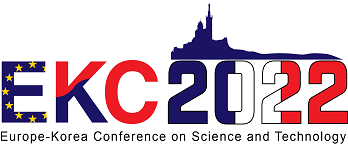PROGRAMME
DIVISIONS
- All Divisions
- Built Environment
- Basic Science
- Chemical Engineering & Material Science
- Environment & Energy
- Electrical/Electronics Engineering & Information Technology
- Life Science & Health
- Mechanical & Aerospace Engineering
- Marine & Ocean Engineering
- Special Topic
- Poster Session
- Complementary Sessions

|
|
|
|
|

|
|

|
|

|
|

|
|

|
|

|
|

|
|
|
|
|

|
|

|
|

|
|

|
|

|
|

|
|

|
|
|
|
|
_20220623160809.jpg)
|
|

|
|

|
|

|
|

|
|

|
|

|
|

|
|

|
|

|
|

|
|

|
|

|
|

|
|

|
|

|
|

|
|
TBA
TBA

|
|

|
|

|
|

|
|

|
|

|
|

|
|

|
|

|
|

|
|

|
|

|
|

|
|

|
|

|
|
